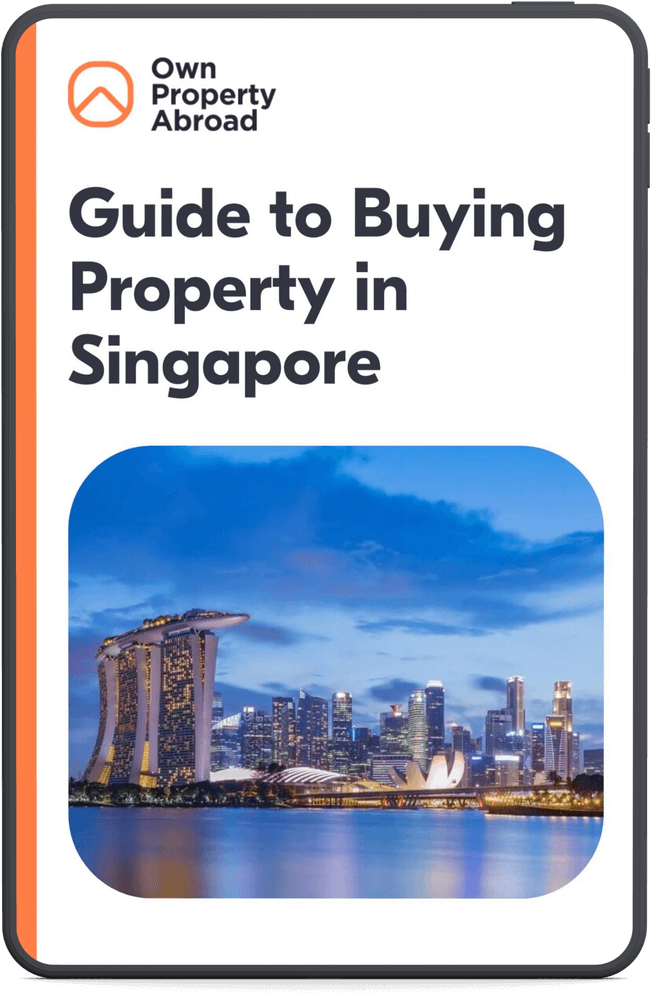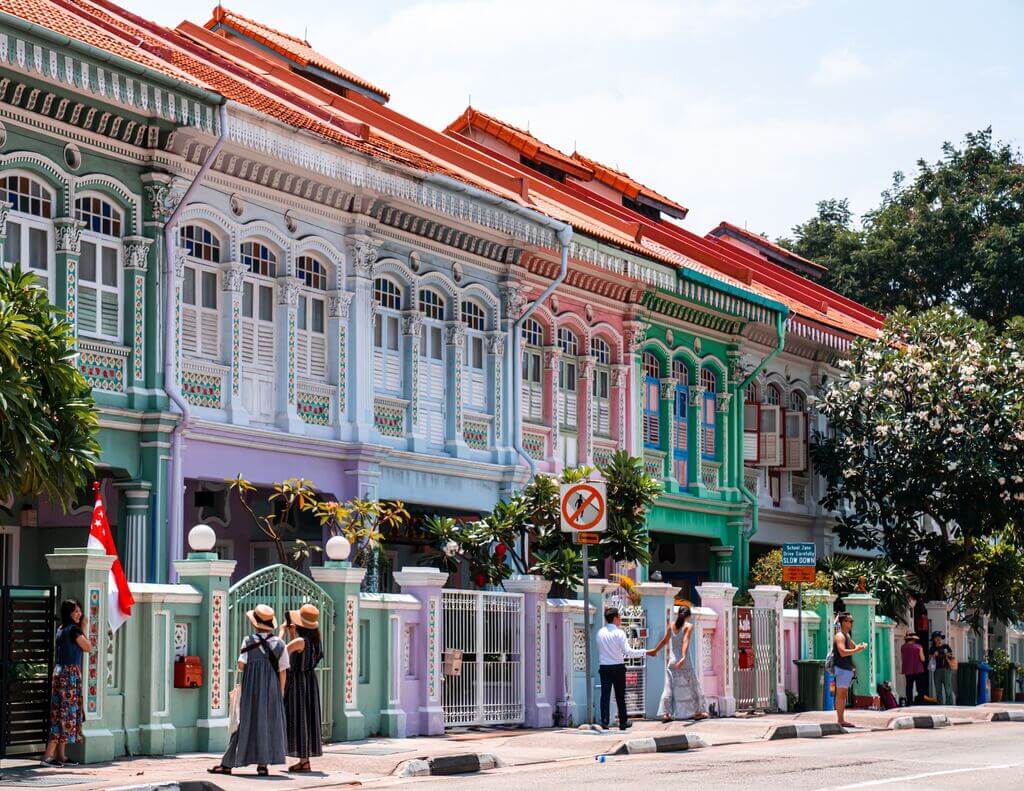Understanding the property sales tax in Singapore
Property sales tax in Singapore is straightforward to understand, although this might be challenging for foreigners facing property sales tax in Singapore for the first time. Those selling residential property in Singapore must pay Seller’s Stamp Duty (SSD). Sellers of commercial properties in Singapore might be required to charge Goods and Services Tax (GST) if they are a GST-registered entity.
Seller’s Stamp Duty (SSD)
Those who sell residential property in Singapore pay Seller’s Stamp Duty (SSD), the most crucial property sales tax in Singapore. The SSD rate sellers pay depends on the purchase date and holding period, with shorter periods incurring higher rates. Sellers pay the tax on the selling price or the market value, whichever is higher, within 14 days after the real estate transaction.
If someone bought different parts of a real estate object at other times, the time they’ve held each piece will be used to determine the SSD tax. You find an overview of the SSD rates of Singapore in the table below.
| Purchase date | Holding period | SSD rate |
|---|---|---|
| Between August 30, 2010, and January 13, 2011 | Up to 1 year | 1% on the first SGD 180,000 ($135,180) 2% on the next SGD 180,000 ($135,180) 3% on the remainder |
| More than 1 year | No SSD payable | |
| Between January 14, 2011, and March 10, 2017 | Up to 1 year | 1% on the first SGD 180,000 ($135,180) 2% on the next SGD 180,000 ($135,180) 3% on the remainder |
| Between 1 and 2 years | 0.67% on the first SGD 180,000 ($135,180) 1.33% on the next SGD 180,000 ($135,180) 2% on the remainder | |
| Between 2 and 3 years | Between January 14, 2011, and March 10, 2017 | |
| More than 3 years | No SSD payable | |
| Between January 14, 2011 and March 10, 2017 | Up to 1 year | 16% |
| Between 1 and 2 years | 12% | |
| Between 2 and 3 years | 8% | |
| Between 3 and 4 years | 4% | |
| More than 4 years | No SSD payable | |
| On and after March 11, 2017 | Up to 1 year | 12% |
| Between 1 and 2 years | 8% | |
| Between 2 and 3 years | 4% | |
| More than 3 years | No SSD payable |
Exemptions from SSD tax
There are several exemptions from the Seller’s Stamp Duty (SSD) for residential properties in Singapore:
- Licensed housing developers: No SSD tax for selling residential properties developed by licensed housing developers.
- Public authorities (e.g., HDB, JTC): No SSD tax for public authorities selling residential properties in their official functions.
- Properties acquired by the Singapore government: No SSD tax for property owners if the Government acquires their property under the Land Acquisitions Act.
- Individuals adjudged bankrupt: No SSD tax if the owner is required to sell residential properties due to bankruptcy.
- Companies under involuntary winding up: No SSD when disposing of residential properties.
- Foreigners selling under Residential Property Act: No SSD required.
- HDB flat sellers under Selective Enbloc Redevelopment Scheme (SERS): Specific exemptions for selling in the open market before HDB claims.
- HDB flat return due to re-possession or SERS: No SSD required.
- Inheriting and disposing of an HDB Flat (On or after December 18, 2015): Specific exemptions for those owning an HDB flat and inheriting another or owning a non-HDB flat and inheriting an HDB flat.
- Married couples owning separate HDB flats (On or after December 18, 2015): No SSD if required to dispose of one of the flats under HDB regulations.
These exemptions offer specific scenarios where the SSD tax does not apply, reducing the financial obligations of selling residential properties in Singapore.
How to pay SSD tax in Singapore?
Property sellers can pay the SSD via the e-Stamping Portal and perform the payment through several payment methods, such as GIRO for Stamp Duty, AXS, PayNow QR, Internet Banking Fund Transfer, or Cheque/Chashier’s Order.
Does a legal agent or law firm file your property sales tax in Singapore? They must fill in a Seller’s Stamp Duty for Residential Properties Declaration Form and retain the original declaration form for at least five years from the date of sale or disposal of the property (the form does not have to be submitted to IRAS).
Goods and Services Tax (GST)
Another possible property sales tax in Singapore is the Goods and Services Tax (GST). Commercial properties in Singapore are subject to GST if sold by a GST-registered entity. This does not apply to residential properties, like HBD flats, condominiums, and landed houses. The GST rate in Singapore is 8%.
Get help with property sales tax in Singapore
Understanding Singapore’s Seller’s Stamp Duty (SSD) is essential before selling property in Singapore. To effectively navigate the legal framework and ensure peace of mind, seeking guidance from professionals specializing in property taxes, investment due diligence, and property sales is recommended. This will not only save time but also guarantee a smooth transaction.
Valuable insights and practical advice, distilled from years of expertise and real-world experience.


Frequently Asked Questions (FAQs)
Do I still have to pay Estate Duty tax in Singapore?
No, you do not have to pay Estate Duty tax in Singapore. This type of property sales tax in Singapore was abolished as of February 15, 2008, and is no longer applicable to property for sale in Singapore.
Are property sales in Singapore taxable?
Yes, property sales in Singapore are taxable. Several taxes are associated with selling property in Singapore, including the Seller’s Stamp Duty (SSD) and Goods and Services Tax (GST) on commercial properties.
Is there GST on the sale of property in Singapore?
GST applies to the sale of commercial property in Singapore. Residential properties are exempt from GST, including most properties for sale in Singapore intended for residential use.
What is the tax on foreigners selling a house in Singapore?
Foreigners selling residential property in Singapore are subject to the Seller’s Stamp Duty (SSD) and pay the same rate for property sales tax in Singapore on selling a house as local citizens.
What is the SSD tax rate in Singapore?
The SSD tax rate in Singapore varies depending on the holding period before selling property in Singapore. It can range from 0.67% to 16%. Seller’s Stamp Duty for industrial properties might differ, and the rates apply to Singapore citizens and foreigners. For accurate rates and possible property tax refunds when selling a house, it’s advisable to consult with professionals familiar with property sales tax in Singapore.



